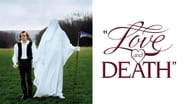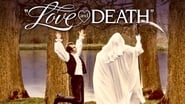EarDelightBase
Waste of Money.
Limerculer
A waste of 90 minutes of my life
BallWubba
Wow! What a bizarre film! Unfortunately the few funny moments there were were quite overshadowed by it's completely weird and random vibe throughout.
Verity Robins
Great movie. Not sure what people expected but I found it highly entertaining.
sharky_55
Tolstoy may have War and Peace, but it pales in comparison to the sweeping gravitas of Allen's Love and Death, which tackles two even more universal issues which plague us all. In this film, Allen shows his remarkable talent at engaging with grander, more immediate themes that his earlier comedies but still have that magic touch which turns any situation into hilarity. The plot is a parody of the dense, high- minded Russian epics, in particular those of Tolstoy and Dostoyevsky. Allen's neurotic, wimpy type is dropped right into the setting, Russia during the Napoleonic Wars, where all the young men are practically jumping out of their skin to serve their motherland, whilst Boris would rather sheepishly sneak away and work on his butterfly collection. Allen's physical comedy is on show here in brilliant form; most notably in a montage of all his army incompetencies and goofs, his schoolboy wooing tactics of a Countess, and perhaps the most delightful of them all, a muted, sped up slapstick sequence involving Allen, Keaton and a guard they are trying to knock out with an empty bottle, which recalls the silent film masters and their antics. He uses the frame (see the bickering and slap-fighting of Napoleon and his double) and the edit (six minutes later the Countess' room is strewn with overturned furniture like a thief had been through it) to great effect. The film tackles all the dense philosophical ideas of the Russian literature it parodies with a bemused perspective. Boris sticks out like a sore thumb amongst the gruff and uncivil Russian environment and spouts streams of existential jargon that become so complex and redundant that they lose all meaning. He constantly spars verbally with her cousin Sonja, the Anna Karenina figure, who is also embroiled in a web of social anxieties and troubled relationships. Keaton has a remarkable knack for her deadpan delivery of the absurd, further pushing these situations into hilarity: "I'm twenty eight and he's eighty one." When that man drops dead suddenly in her moment of faux triumph, she quickly decides on another lover, and the film treats it as if they were destined for each other, despite his tendency to talk about the herring industry very seriously and her tendency to sleep around vicariously (the tender deathbed moment interrupted by exaggerated coughing and clearing of throats at the mention of her 'purity' is gold). Watching this with the knowledge of the prevalence of the Allen-type about to boom next with Annie Hall and so on is extremely valuable. Here Allen has the self-awareness of the pitfalls of his intellectual character and has perfectly emphasised them in a context that asks for the opposite. He is not the heroic soldier but rather stumbles onto an opportunity which covers his chest with medals. His awkward aversion for violence is mistaken for the highest of nobilities (A similarly amusing pistol duel that year from Barry Lyndon also mocks the prissy, formal nature of these life-and-death shootouts). He is an intellectual like so many before and after him, and sensual, and as spiritual as he can be, but never really takes life seriously because there is an existential meaningless about it. Life's cruel twist is that he has this sort of spiritual awakening as he is jailed, a Dostoevskian epiphany, and as just as he decides to have found his meaning for living, God stands him up. And so he dances on along with Death. Very funny indeed, in a cruel and ironic way.
ma-cortes
This movie is considered to be a spoof of Russian Novels . It is set in czarist Russia, 1812 , a neurotic Boris Grushenko (Woody Allen) wishes to marry his distant cousin (Diane Keaton) . Although both of whom take two divergent ways in their lives, those paths cross once again . When Napoleon threatens to invade the Russian Empire, the coward soldier is forced to enlist to save his natal nation . Later on , Boris and his lover cousin formulate a scheme to assassinate Napoleon (James Tolkan) . At the end he is detained and the condemned man reviews his past life .Amusing picture fable is plenty of the filmmaker's signature angst-ridden philosophical comedy . Hilarity slips into vulgarity rather too often in this usually in-and-out early Woody Allen comedy which embroils the little man in Russia invaded by Napoleon . Like a Russian soldier , the gags and funny sketches fire off in all directions . There is a lot of spoofs and even Bergman's ¨The seventh seal¨ and ¨Persona¨ and jokes for moviegoers . As the movie featured the Death character of The Grim Reaper , Allen is known to be inspired and influenced by Swedish filmmaker Ingmar Bergman who had featured the Grim Reaper in his film The seventh seal (1957) ; in the Bergman film the Grim Reaper wears black robes whereas in this film he wears a white gown . The picture is ironical about major Russian novels particularly the works of Leo Tolstoy and Fyodor Dostoevsky . In fact , the movie title is a play on words of such Russian novel titles as Leo Tolstoy's "War and Peace" and Fyodor Dostoevsky's "Crime and Punishment" . Nice acting by Woody Allen at his best , as a condemned man who reviews the follies of his life . His comic style paid homage to a number of classic comedians which included Bob Hope , Charles Chaplin and The Marx Brothers . Intermittently hilarious , pre-Annie Hall Allen fare , it is is one of eight cinema movie collaborations of Woody Allen and actress Diane Keaton, Allen co-starring in six of them and directing seven of them . These are the followings : Play It Again Sam , Sleeper , Interiors , Manhattan , Radio Days , and Manhattan Murder Mystery . It is fun enough to make wish there were more of it and you will have to keep your eyes peeled to spot notorious secondaries as Jessica Harper , Harold Gould , Olga Georges Picot , Féodor Atkine , Gérard Buhr , Howard Vernon and James Tolkan as Napoleón and his double and about ¨fifty-four supporting players" .Witty as well as classical musical score contributes much . At the beginning the soundtrack was taken from Igor Stravinsky music , but , subsequently , Woody Allen took Sergei Prokofiev's lighthearted score that worked far better . The movie's big battle sequence features Sergei Prokofiev's cantata music from Sergei M. Eisenstein's epic Alexánder Nevsky (1938). Colorful as well as evocative cinematography by Ghislain Cloquet , being shot on location in Hungary and Paris , France . Lavish and stunningly produced by Charles H. Joffe , Allen's ordinary producer . This enjoyable motion picture was vigorously directed by Woody Allen , being his sixth film as director and here to ridicule Russian novels such as "The Idiot", "The Gambler", "War and Peace", "Anna Karenina", "Crime and Punishment", and "The Brothers Karamazov". Woody Allen has said that this movie was "my funniest picture to that time".
Marc Israel
I can't imagine another director in their prime tackling the Russian mindset, their war and poverty with as much silly and reckless abandon all in the name of comedy without pushing viewers over the edge. Woody pontificates to the audience turning a spiritual ethos on its head and still making some sense while parodying Russian literature while translating the literal into the parlance of our times. Diane Keaton's funniest movie ever. She completely delivers line after line to keep the plot moving while Woody does his nervous comedy routine with music to warm the cossacks! The bits are all very straight forward even if the literature they are mocking is above my pay grade.
Abyss47
Out of all the Woody Allen films I've seen so far, this is the one I can safely say I found hilarious. The comic timing on display is nearly perfect, and the film does a great job of staying unpredictable with the visual gags and constantly moving forward. Allen and Keaton have never been more fun to watch on screen, and they're aided by a strong supporting cast. The writing is extremely clever as well, satirizing Russian literature and making references to such films as "The Seventh Seal" and the works of Sergei Eisenstein. The film doesn't require you to have seen those films to find the references funny, though, and that's due to the brilliant execution. The film also contains Allen's trademark mock-philosophical debates that have been seen in his other films, except this time I found them far more engaging and funny than usual instead of rolling my eyes.The use of music was also clever, especially during the big, epic battle scene, which makes use of the music from Sergei Eisenstein's "Alexander Nevsky"; an excellent touch. That scene also winds up becoming one of the funniest in the entire film. Those who are fans of the likes of Charlie Chaplin and The Marx Brothers will want to check this film out as well since it pays tribute to them. Diane Keaton played her best character in all of Allen's films here, as it's both fully developed and charming. Demonstrating Allen at his most eclectic and creative, it's here that he made perhaps the most entertaining period piece (if you can call it that) of all time. If you haven't seen it yet, I can't recommend it enough. Even if you don't find it as funny as I did, it's likely you'll still be amused by it. As of right now, I'm proclaiming this as Allen's masterpiece. Every element just clicks to form a great, wondrous whole that never ceases to be entertaining or get a laugh out of me.


